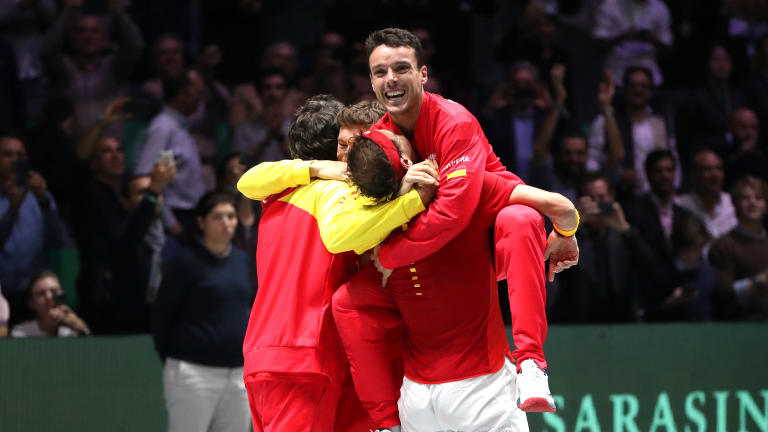"It made me who I am": Bautista Agut converts grief to courageous play
Apr 10, 2020ATP Basel, Switzerland
Streaking Roberto Bautista Agut stuns ATP Finals contender Casper Ruud in Basel
By Oct 23, 2024Weekend Winners
Antwerp champion Roberto Bautista Agut represents a generation that refuses to go quietly
By Oct 20, 2024Davis Cup
Davis Cup Finals setting boosts Carlos Alcaraz with the feeling that he's "not playing alone"
By Sep 13, 2024Wimbledon
At 37, Fabio Fognini a win away from first Wimbledon R16 trip after Casper Ruud ousting
By Jul 03, 2024Madrid, Spain
Joao Fonseca wins Masters 1000 debut in Madrid over fellow teen Alex Michelsen
By Apr 25, 2024ATP Barcelona, Spain
Cameron Norrie clinches 200th match win by halting Roberto Bautista Agut in Barcelona
By Apr 18, 2024ATP Barcelona, Spain
Rafael Nadal loses to Alex de Minaur in second round at Barcelona in return from injury layoff
By Apr 17, 2024ATP Barcelona, Spain
Qualifier Nick Hardt becomes first Dominican to win ATP match in six years
By Apr 15, 2024ATP Estoril, Portugal
"It paid off": Dominic Thiem enjoys first ATP match win of 2024 in Estoril
By Apr 01, 2024"It made me who I am": Bautista Agut converts grief to courageous play
In his upload to Behind The Racquet, the Spaniard opens up about the death of his parents, and becoming a better tennis player to honor their legacies.
Published Apr 10, 2020
Advertising

"It made me who I am": Bautista Agut converts grief to courageous play
© Getty Images
Advertising

"It made me who I am": Bautista Agut converts grief to courageous play